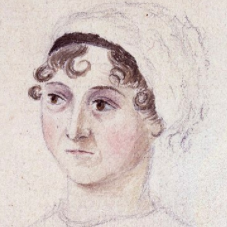Racism and
the Image of God

By a Lady
Racism is a difficult topic to confront, but that is a part of loving our neighbor.
Mornings are strange these days. I used to wake up and ask myself “What’s for breakfast?” or “What am I going to wear today?” In this season of my life, the word “pandemic” constantly echoes through my mind. It is almost unreal to read about the lives lost to coronavirus. But while the war against this pandemic goes on, another, older battle has taken center stage. For weeks now, the names of Breonna Taylor, George Floyd, and more recently Rayshard Brooks, are in the hearts of many. Someone lost their father, mother, brother, sister, cousin, and friend because of the color of their skin. Sometimes I want to pinch myself just to make sure, just to come to terms with the fact that a person’s race can pose a daily threat to them. It baffles me, because I believe that we were are all created in the image of a loving God (Genesis 1:27, I John 4:8) and that, whether we are aware of it or not, how we treat fellow image bearers is a testament to how and what we perceive of the God who created them.
As a child, I was fortunate enough to interact with people from many countries and cultures. I had a close friend from India and teachers from Hungary and the U.S. I saw the difference in the color of our skins, I heard the difference in our accents, and at times sensed cultural differences among us, but that never was, and never should be, a cause for discrimination. Learning about another person’s culture, from dress to dances, was always something to be honored and celebrated, and none of us were treated as any less human because of it.
So God created mankind in his own image, in the image of God he created them; male and female he created them.
—Genesis 1:27
As a child, my race was not something I thought about. I grew up in a predominantly Black country, where issues like tribalism, perhaps, were more center stage. I was not the minority. As a student in America, my race became apparent to me. Whether I was deliberate about it or not, I found myself on a subtle lookout for a tutor who looked like me, and was pretty surprised to find only one; we would smile and nod each time our paths crossed. I constantly found myself in spaces where there was only one other Black person, or no others at all. I started to calculate how to speak and behave in certain social situations, just to feel like I fit in. That is when my race stared at me in the face.
With regards to the “issue” of race, a life of persistent self-examination is unavoidable—unless, of course, I choose to avoid it.
I’m continuing to ask questions and learn why race is an important discussion in America; unfamiliar words, like “systemic racism” or “microaggression,” still surface. It is disheartening to learn how deep the roots of racism run. From centuries past, we read the stories of enslaved people like Harriet Tubman and Frederick Douglass. Today, the roots of racism bear fruit in the Instagram video of a little black girl who thinks she is “ugly” or questions the texture of her hair, or when you learn that someone might follow you inside the grocery store because the color of your skin suggests to them that something might go amiss. Today, the dangerous and heartbreaking thing is that, while racism does reveal itself in ways we recognize, it also emerges in ways we may miss: subtle judgements we make about others, fear that creeps up on us as we walk down a certain street, our ideals of physical beauty. With regards to the “issue” of race, a life of persistent self-examination is unavoidable—unless, of course, I choose to avoid it. Largely through social media, the world has been invited to study the skeins of racism woven into the fabric of a society. To run away from the discussion of race in today’s world is not just harmful for our society today, but to the generation after ours.
Teaching someone to fear and hate another person based on the color of their skin is dangerous. It is dangerous because, before a person sees me, before they know me, they think they know me. Preconceived notions of what a stranger sounds like, how they behave, whether they’re supposed to be perceived as dangerous—these things rob us of the ability to love one another, truly and unconditionally.
The events we have watched on our screens are wrong. They show the effects of a sinful, broken world. But watching the world stand together in protest is a beautiful testament to love. It shows that we are seeking to walk in love and truth with one another, whether individually by having uncomfortable but necessary conversations, or by working collectively to seek justice. For me, this is a time to listen, to empathize, to learn and unlearn, and to give others the grace to do the same. It is a time for me to ask how I can stand up for the lives of Black people in America.
How good and pleasant it is when brothers live together in unity! It is like precious oil poured on the head, running down on the beard, running down on Aaron’s beard, down upon the collar of his robes.
—Psalm 133:1
__________________________________________________________________________________
The author of this piece remains anonymous at her own request.
If you enjoyed this post, you might also like the three-part series contributed by Dr. Anika Prather on the Great Books in the history of Black education in America. Or check out our weekly podcast, Anchored, where our founder Jeremy Tate speaks with leading academics and advocates internationally.
Published on 20th August, 2020.